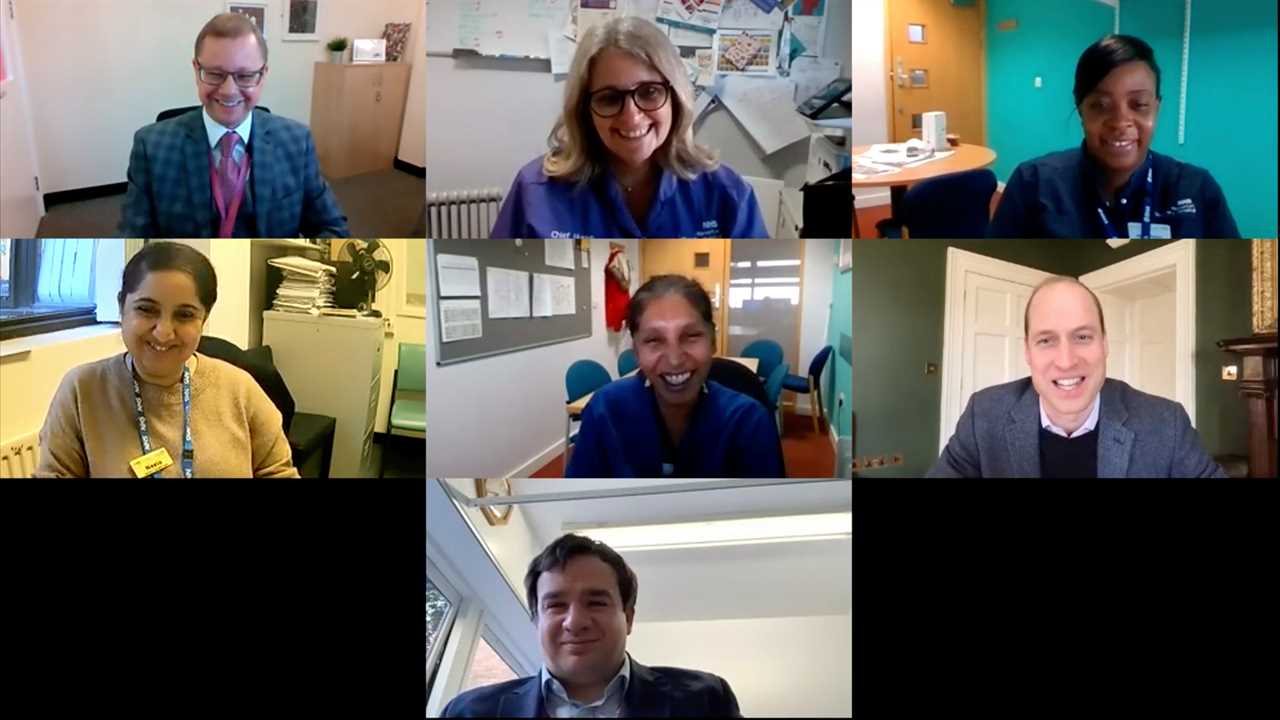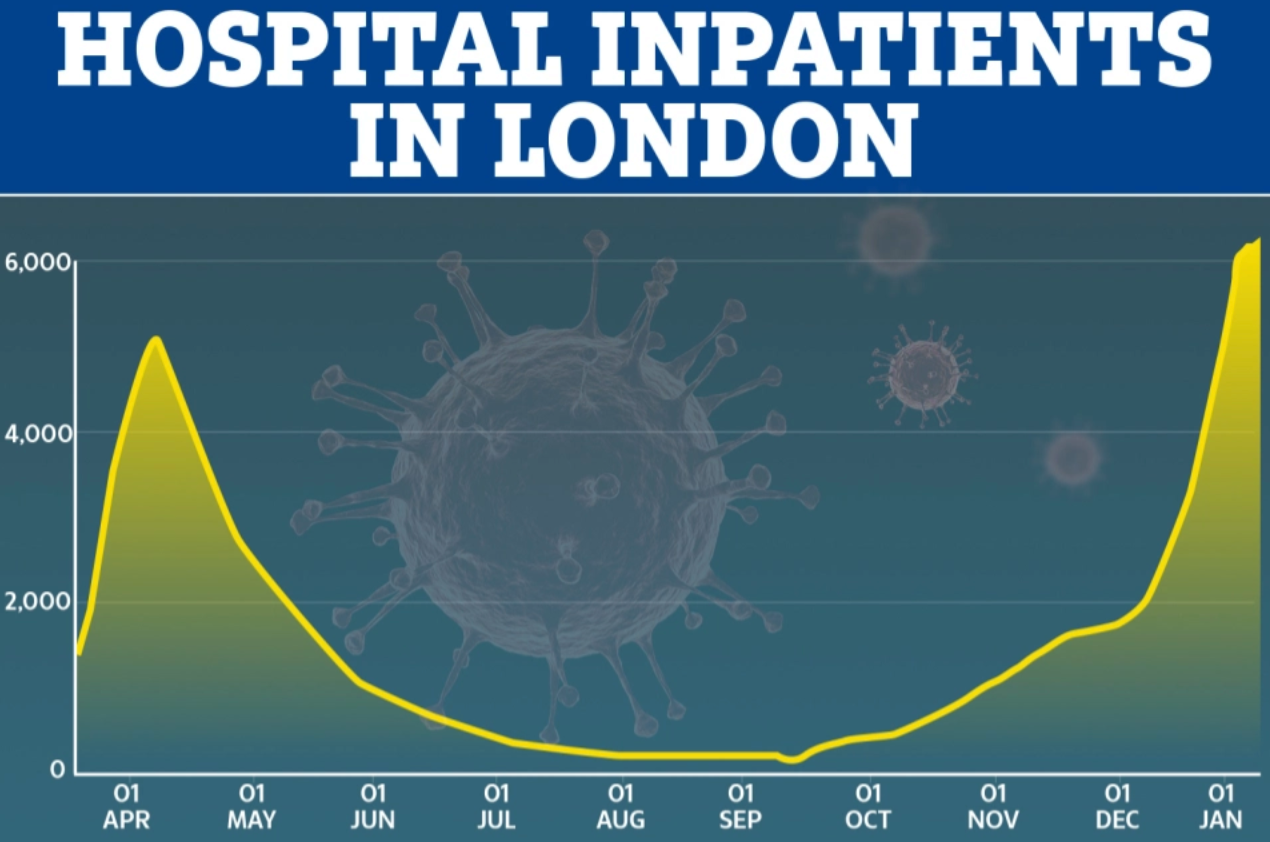PRINCE William has thanked frontline NHS staff dealing with the worst week of the Covid crisis, as medics urged Brits to stay at home to help find a way out of lockdown.
Speaking to NHS workers at Homerton University Hospital, East London, on a zoom call, the Duke of Cambridge listened to staff who said events were now “worse than the first wave”.

A senior nurse told the Prince of Wales there was a glimmer of hope as queues of people lined up to receive the vaccine – but that the public must “stay at home” to allow for a way out of lockdown.
Speaking on Thursday, the Duke said: “A huge thank you for all the hard work, the sleepless nights, the lack of sleep, the anxiety, the exhaustion and everything that you are doing, we are so grateful. You are all in my thoughts.”
The Duke of Cambridge revealed he speaks to his children every day about NHS workers, adding: “Catherine and I and all the children talk about all of you guys every day, so we’re making sure the children understand all of the sacrifices that all of you are making so thank you so, so much.
“Good luck, we are all thinking of you.”
The meeting comes as Britain experienced one of the toughest weeks in the pandemic yet.
Major incidents were declared in Sussex, Surrey and London – hot on the heels of similar announcements in Essex and Buckinghamshire last week – as UK hospitals began to buckle under the pressure of record Covid patients.
Today, the UK saw its highest ever number of deaths with 1,325 fatalities from Covid and 68,053 new cases.
Homerton University Hospital also experienced its highest number of admissions since the pandemic began in the last seven days, with more than 200 Covid patients being cared for and staff being moved to new roles within the hospital to cope with the ongoing pressure on frontline workers.

During Thursday’s zoom call, William heard from staff about the challenges they face surrounding the pandemic.
Dr Carlo Prina, consultant physician and clinical lead for acute ambulatory care, told the Prince plainly: “So this is worse than the first wave. I think that’s the first thing we want to say.”
Dr Prina detailed the spikes in patient admissions during 2020 and how medical staff – from experienced consultants to junior doctors – were now helping out.
He added: “That sounds quite bleak and I don’t want it to sound so bleak, but the horror of the situation has been met by an incredible effort of people coming together.
“I think that people are tired. People knew this was going to happen but we are still tired and between the two waves there was so much work to prepare for this wave, but also to try and get everything going again to get back to the levels they were.”
Chief nurse Catherine Pelley told William they had tried to support staff with various initiatives including a “Wobble Room”, where workers can relax, set up using funds from NHS Charities Together, of which Prince William is patron.
Nurse Pelley added: “For us this week, starting vaccinating has been one of the single most significant impacts on people feeling that there is a future out of this, and the queues out the door here where they have been vaccinating have been really kind of hopeful for people.
“But the support we need is stay at home, help us – because that will get us all out of this whatever our role is and we will get society out of this.”
After hearing how staff are supported William said: “It’s good that you and your team are keeping your spirits high and I always find that having some sort of sense of humour through everything is very important, otherwise we all go mad.”
Funds from the NHS Charities Together have paid for breakfast boxes sent to hospital and community staff, and a new break out room for A&E staff.
The Duke and Duchess of Cambridge became joint Patrons of NHS Charities Together in December 2020.
The Trust has also embraced the need for staff psychological support throughout all stages of the pandemic.






